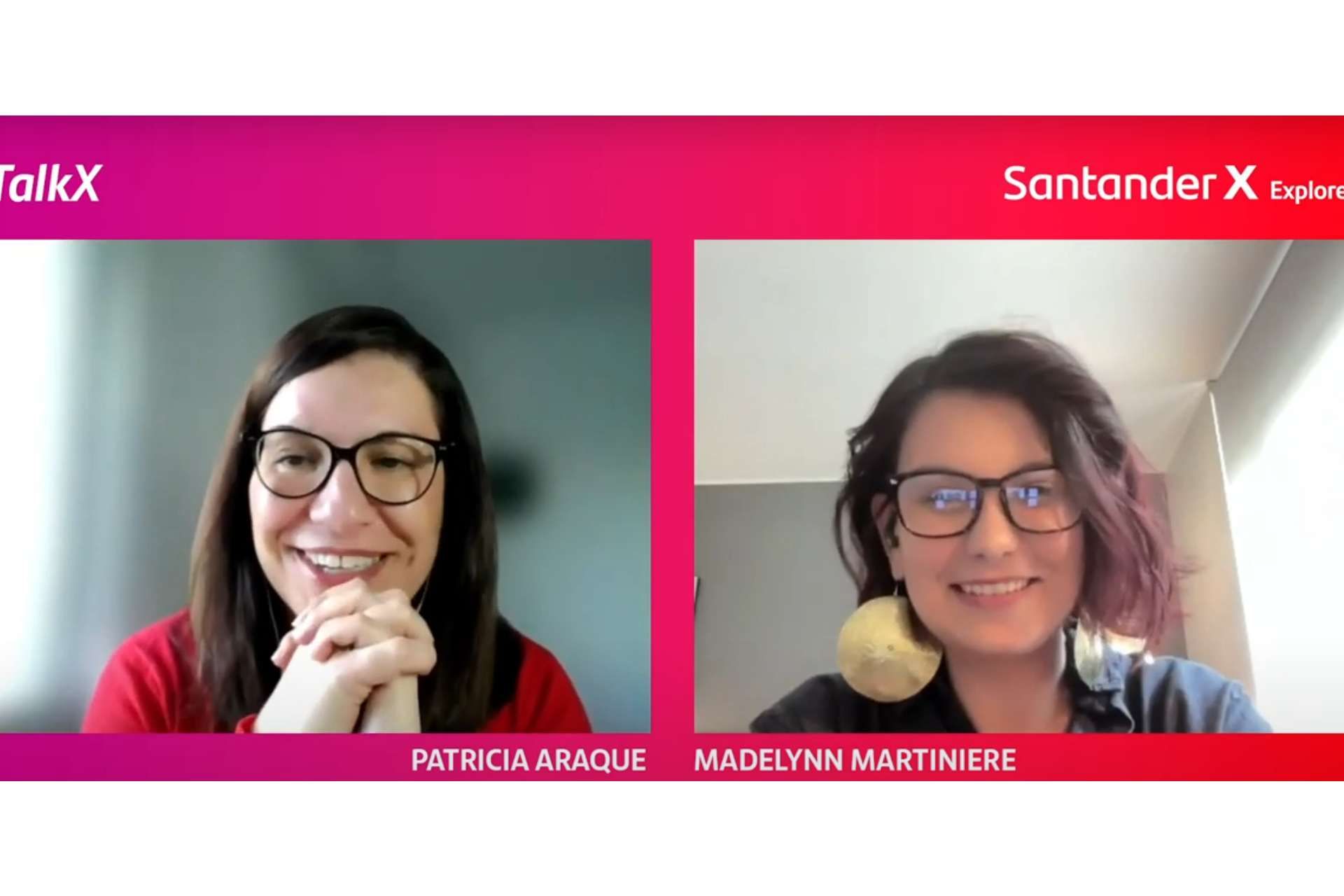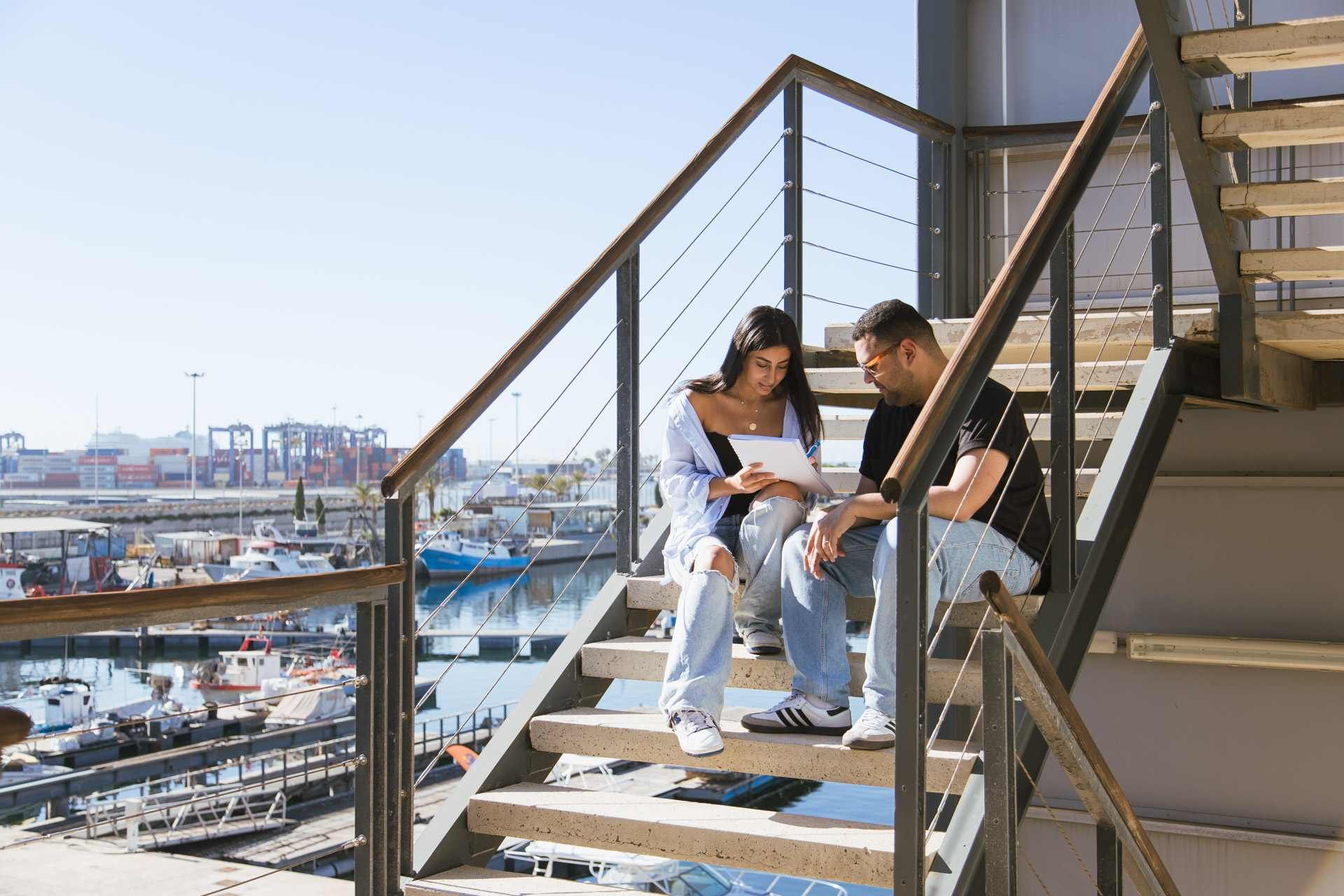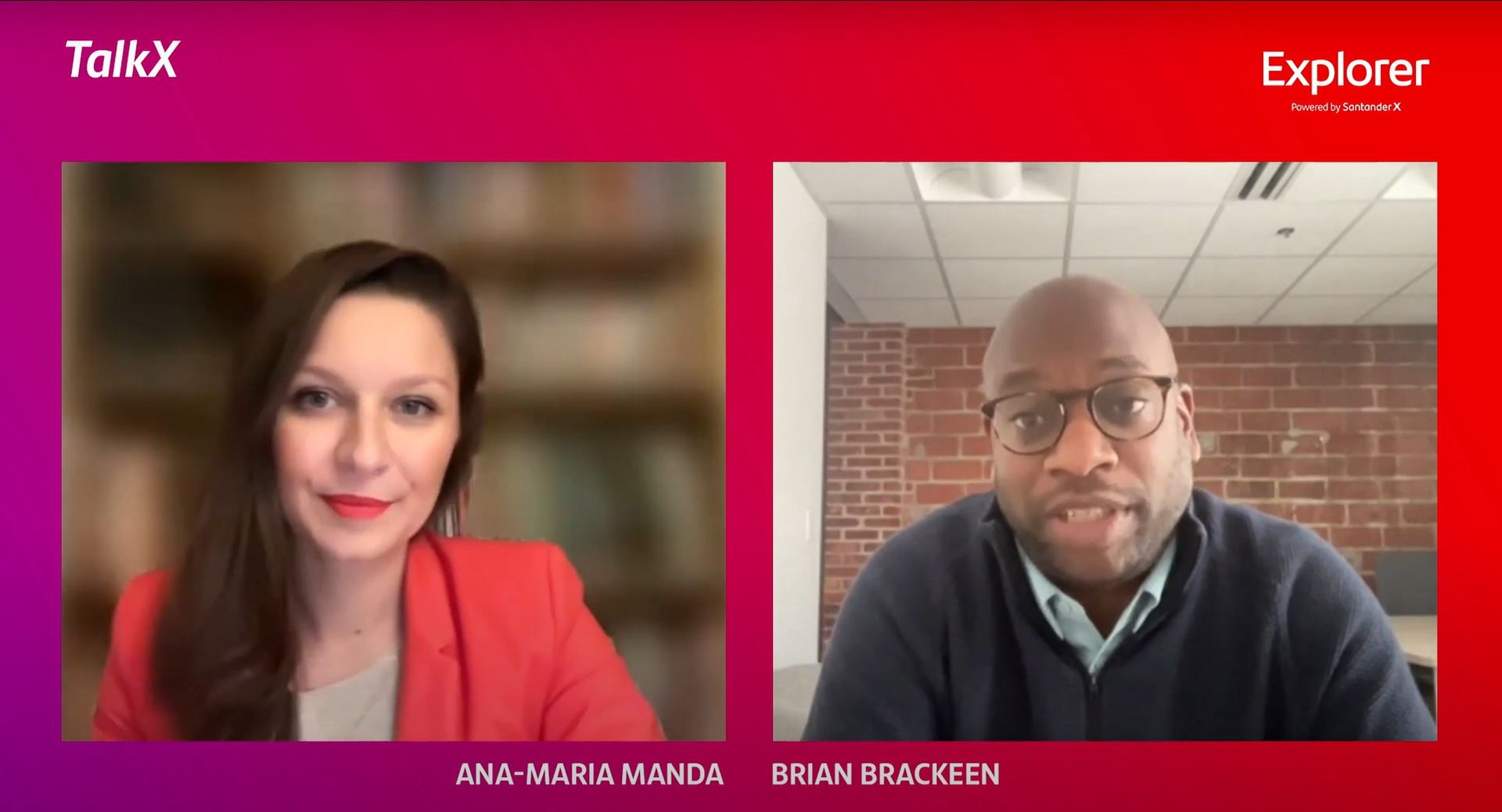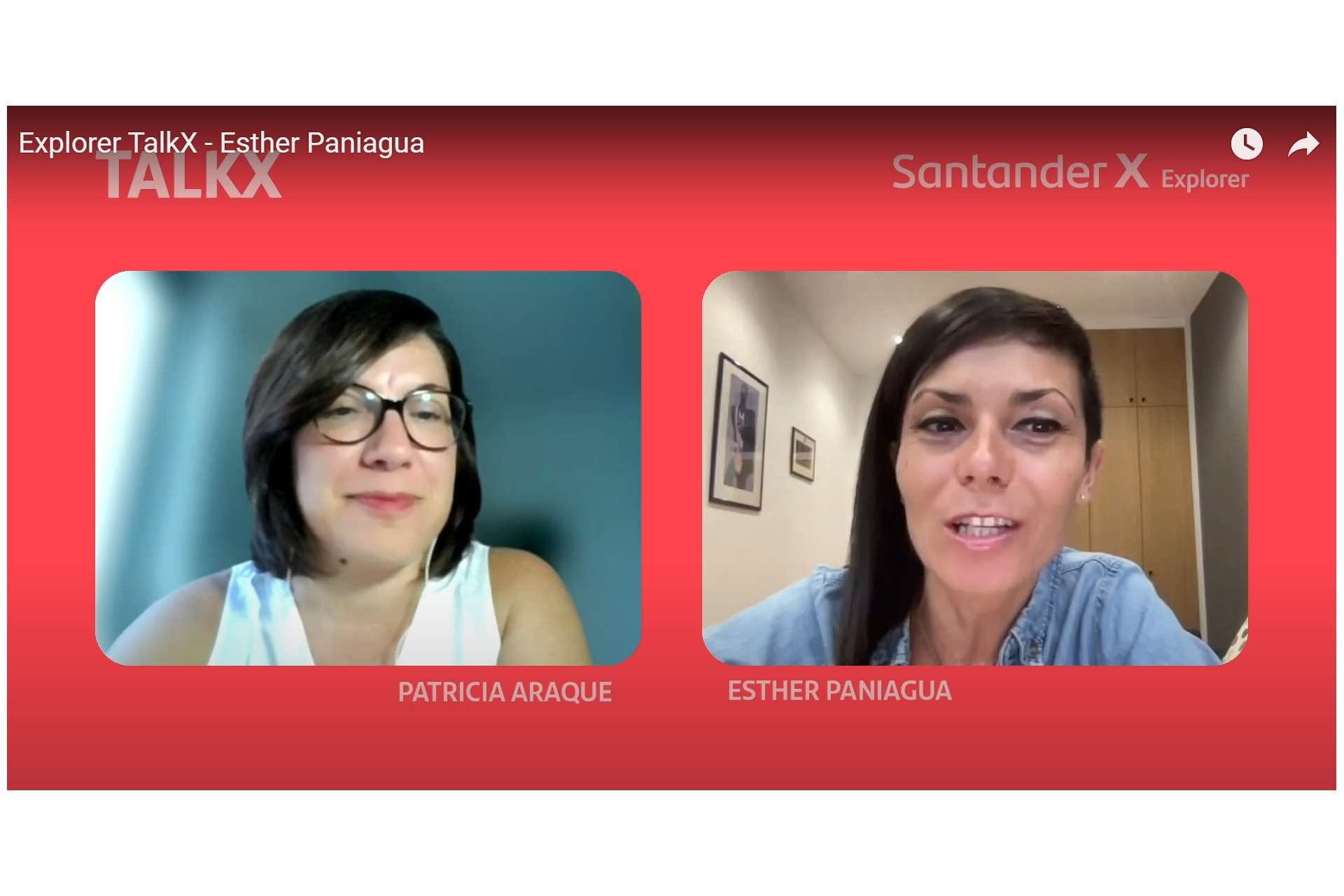9/22/2023
Methodology
5 minutes of reading
How do we learn in Explorer? These are the three pillars of its teaching-learning methodology.
Authors
- Explorer by X
Categories
The main goal of the Explorer programme is for participants to validate their business idea. When they finish, they’ll be able to answer the question, “Does it make sense to continue with this project, is it viable?”
By Patricia Araque, CEO of Explorer.
To get there and, at the same time, to ensure that Explorer participants develop a range of entrepreneurial skills that will serve them not only in their project but also in any professional or academic field, Explorer uses a methodology based on three key ideas:
- Social learning.
- Learning by doing.
- Flipped learning.
Social learning: In Explorer, you’re never alone
Explorer combines individual and group activities, synchronous (happening at a specific time for everyone), and asynchronous (flexible in timing and tailored to each person’s schedule) activities. All of them are grounded in the community, because in Explorer, you learn with and from your peers.
There are group work sessions, Q&A sessions with experts, networking activities… But even the digital itinerary, where content is addressed individually, provides tools for participants to converse and share reflections with other program participants.
This happens because we understand the importance of activating what we call “hive intelligence.” Although it’s true that you learn a lot from expert individuals who have already walked part of the journey, sharing concerns and doubts with other entrepreneurs who are facing the same challenges and moods as us is also very valuable. Learning within a community is one of the greatest benefits of a programme like Explorer, because you not only gain knowledge but also contacts (which, moreover, come from a global network in which you meet people from all over the world).
One of our favorite activities is Explorer Friday, an in-person networking event, self-organized by the Explorers themselves, taking place in many locations around the world simultaneously. The idea is to be having drinks in Buenos Aires, knowing that on the same day, colleagues are doing the same thing in Barcelona, Mexico City, London, Sao Paulo, Miami, or Berlin; that’s how ubiquitous the Explorer community is.
This way of learning is crucial for incorporating entrepreneurial skills related to teamwork and leadership by taking the initiative.
Learning by doing: experimenting is the path
Another fundamental pillar of Explorer is the famous “learning by doing.” From the very beginning, participants in the programme build their projects by “exploring” the world. Each theoretical content will push them to act, to take action.
Throughout the twelve weeks, they will have to complete a series of deliverables (or tasks) about their idea that won’t just remain in theoretical knowledge. Their execution will drive them to engage with their peers and potential users and customers of their product or service. Without realizing it, in addition to validating their business idea, they will be growing as professionals and as individuals. There is nothing like throwing yourself into the real world to move forward.
This type of learning is linked to (and complements) the Effectuation methodology, where the focus isn’t on finding the means to achieve a goal but rather, with the means at hand, creating solutions and making progress. In Explorer, entrepreneurs discover tools that they might not have known were within their reach and apply them to continue with their idea or pivot if necessary.
If in the end, the project they enrolled with is not viable, they will take away all that knowledge and those skills. And they will be able to try again! That’s what entrepreneurship is about – understanding that rejection isn’t a bad thing, just something that happens and that there are countless opportunities to move forward with projects that enable financial independence, yes, but also improve our communities and build a better world.
This is the best way to incorporate entrepreneurial skills like opportunity identification, experiential learning, and creativity.
Flipped learning: you are the protagonist
In Explorer, there isn’t a figure of a teacher or an entrepreneurship expert who explains the content. The participants are their own teachers, as we employ the so-called “flipped learning.”
In the first step, at their own pace, they familiarize themselves with the concepts and proposed exercises. From there, they experiment, research, and then participate in sessions with experts who are there to provide feedback on their progress and answer their questions.
These Explorer Experts aren’t teachers; there isn’t a one-way relationship with them. It’s a conversation from which participants benefit the most if they’ve previously autonomously engaged with the content and the proposed deliverable.
This way of learning is essential for the development of entrepreneurial skills such as autonomy, self-awareness, motivation, and perseverance.
These are the three pillars on which Explorer is built. However, in parallel, we complement this methodology and activities with two tools that play a crucial role in the program:
- Explorer Coach: This micro-podcast is hosted on Spotify and accompanies the Explorers during the twelve weeks of the programme to help them manage their emotional well-being in a transformative process like this. All the details are in the article “Explorer Coach, our contribution to early-stage entrepreneurial mental health”.
- WhatsApp Group: Participants can always turn to their group and their Connectxr, as well as the Community leaders of the Explorer team. They will support them throughout the process via WhatsApp. You can learn more details about how we use the messaging tool in this article: “How we use WhatsApp in Explorer as a teaching-learning tool”.



